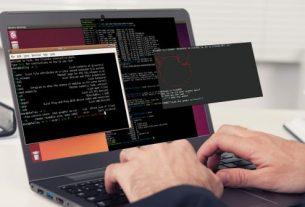What’s the most-used operating system in the world? Easy question, right? It’s obviously Windows.
But the answer might not be quite so straightforward. Sure, Windows dominates the home computer sector, but Linux powers far more of the world’s technology than you probably realize.
In fact, if it were possible to analyze every single piece of technology out there, Linux would almost certainly come out on top.
Sadly, such an analysis will never be feasible. But that won’t stop us digging down into some facts and figures. Here’s why Linux’s true market share is bigger than you think.
Desktops and Laptops
Let’s start with the equipment that we all use every day: desktop and laptop computers.
According to web statistics company NetMarketShare, Windows boasts an entirely unassailable 88.7 percent of the market share. StatCounter puts the number slightly lower at 82.6 percent.

Windows’ dominance is down to the popularity of two releases: Windows 10 and Windows 7. NetMarketShare puts Windows 7 at 44 percent and Windows 10 at 29 percent. StatCounter scores it as 41 and 45 percent, respectively.
In contrast, Linux is struggling along with around two percent of the market. Ubuntu is almost certainly the most popular distro, but precise statistics are impossible to find.
So, if Linux is so far behind Windows, how can it possibly claim to be the most popular operating system in the world? Let’s take a closer look.
Chromebooks
Chromebooks have been making remarkable gains in the education sector. In the US K-12 sector, the devices enjoyed a 58 percent share of the market in 2016. With 17 percent growth in 2017 and a predicted 10 percent growth in 2018, one can safely assume the market share today is nearer 70 percent.
Perhaps most impressively, Chromebooks are posting growth figures in an era of declining laptop sales. The total sales remain a fraction of the total PC market, but the future looks encouraging.
Web Servers

In what will prove to be a reoccurring theme throughout this article, exact figures are not readily forthcoming.
However, according to W3Cook, Linux powers the servers that run 96.5 percent of the top one million domains in the world (as ranked by Alexa).
W3Techs goes even further down the list and claims Linux powers around 70 percent of the top 10 million Alexa domains. Windows controls the remaining 30 percent.
Public Cloud
The public cloud—which is closely tied to the aforementioned web servers—is another area where Linux has pulled well ahead of the chasing pack.
Given the fragmented nature of the space, it’s almost impossible to put your hands on definitive statistics. However, given Amazon EC2 controls nearly half of the market, it’s a good proxy for the entire sector. It’s especially true considering Microsoft has allowed Linux to be installed on its Azure cloud service since 2012.
On Amazon EC2, standard Linux (along with its various distros) controls 92 percent of the market. It boasts more than 350,000 individual instances. Again, Windows is responsible for the other eight percent.
Android
Before we dive into the stats, let us preface this section by saying that arguments about whether Android can truly be considered a Linux system have raged for years. The debate shows no sign of reaching a definitive conclusion.
The controversy arises because there’s not a universally-accepted definition of what Linux refers to. It could be a reference to a Linux kernel, a distro, or even a GNU operating system.
Android uses a Linux kernel, but has extra libraries, a GUI, and some proprietary code. You can draw your own conclusions. I view the Android OS as a subset of the wider Linux world; therefore, I think it’s fair to include it on this list.
So, what about the stats? Well, Android is comfortably the most popular mobile operating system in the world.
As of March 2018, both NetMarketShare and StatCounter agree that it controls around 70 percent of the combined smartphone and tablet market. Second is iOS with approximately 24 percent. Windows is a distant third with less than one percent.
There are an estimated 2.5 billion smartphones in the world, so we can safely assume Android is running on roughly 1.75 billion handsets. For comparison, Windows is running on an estimated 1.5 billion home computers.
Supercomputers
Linux utterly dominates the list of the top 500 most powerful supercomputers in the world. In June 2017, 498 of the top 500 were running Linux. The only two non-Linux machines were running the Unix-based AIX.
By the end of the same year, the two AIX machines had dropped off the list. At the time of writing, Linux now powers all 500 computers on the list.
In case you’re curious, the fastest supercomputer in the world is currently the Sunway TaihuLight in China. It has 10,649,600 cores and can perform 93 petaflops per second. It’s almost three times as fast as the second-placed supercomputer, also in China. The Swiss-built Piz Daint rounds out the top three.
And the Rest…

Linux isn’t just common on laptops, mobiles, and servers. You can find it in consumer products as diverse as Amazon Kindle e-readers, smart TVs, Nest thermostats, drones, and Tesla cars.
Governments have also been adopting the OS in record numbers. The French National Gendarmerie uses its own internal distro, as does the Russian military, and the Spanish education state education system. It even forms the basis of the North Korean state-run operating system, Red Star OS.
It’s also the operating system of choice for the Hollywood movie industry. 1997’s Titanic was the first blockbuster produced on Linux; today, almost every box office hit uses the technology.
And, perhaps most incredibly, Linux has powered space missions. SpaceX uses it for the Falcon 9 rockets.
So, What Is Linux’s Market Share?
It’s impossible to say. There are just too many variations across too many pieces of technology to be able to accurately deduce any top-level figures.
However, we can absolutely say that Linux is not a small-time operating system that’s only suitable for geeks, as people often accuse it of being.
If you’d like to join the growing crowd of Linux users, check out our guide to the best Linux distros and apps.


